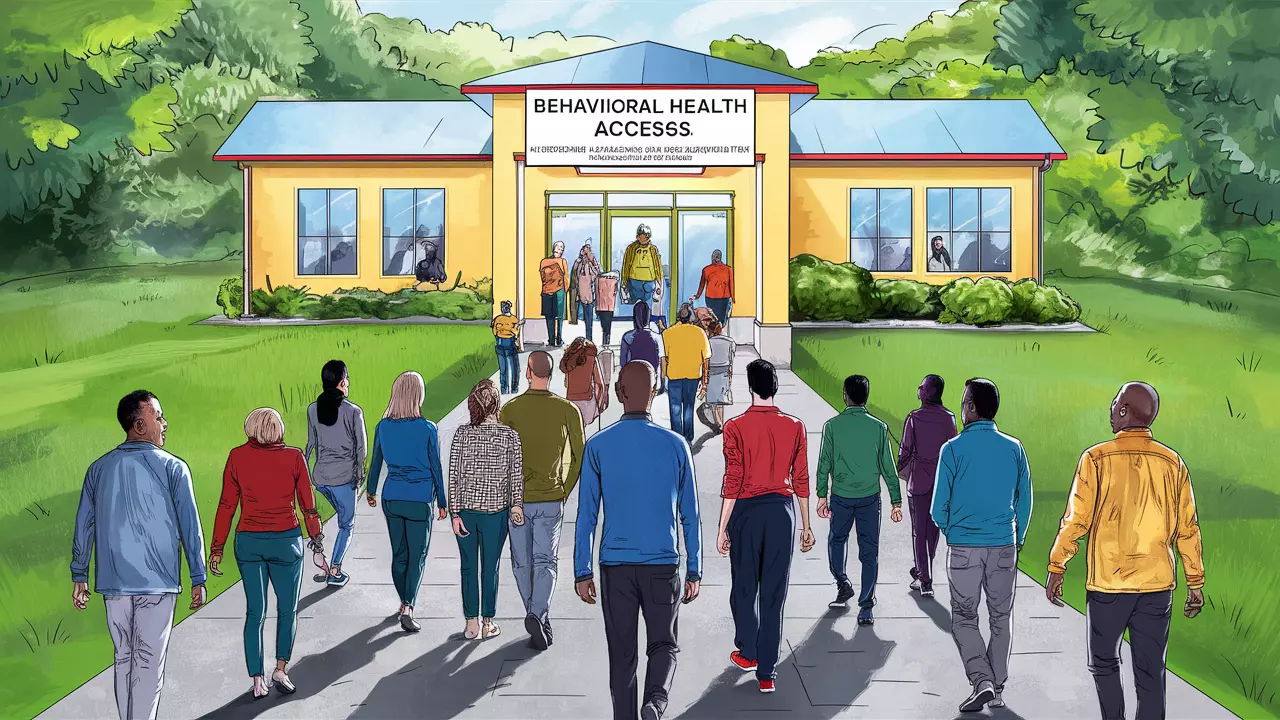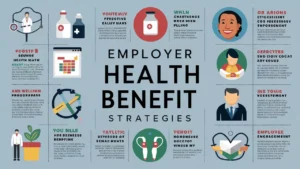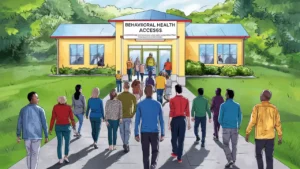Behavioral health is a critical component of overall well-being, encompassing both mental health and substance use disorders. Despite its significance:
- Access to behavioral health services remains uneven, with many individuals facing barriers such as geographic limitations, high costs, and societal stigma.
- Improving outcomes in behavioral health requires a multi-faceted approach, including better integration of services, enhanced policy support, and increased public awareness.
This article aims to delve into the current state of behavioral health access and outcomes, explore effective strategies for service improvement, and highlight key resources available for healthcare professionals.
By addressing these crucial areas, we can better understand how to make mental health services more accessible and effective for all.
Current Landscape of Behavioral Health Access

Understanding the current landscape of behavioral health access is crucial for identifying gaps and opportunities for improvement. Here are key elements that outline this landscape:
- Statistics and Trends
- An estimated 1 in 5 Americans experiences mental illness in a given year, yet less than half receive treatment.
- Access varies significantly across different demographics and regions, with rural areas often facing the most severe shortages of mental health professionals.
- Barriers to Access
- Financial Barriers: High costs and inadequate insurance coverage deter many from seeking necessary care. Even with insurance, copayments and deductibles can be prohibitive.
- Structural Barriers: There is a notable shortage of mental health providers, leading to long wait times and travel distances that complicate treatment continuity.
- Social and Cultural Barriers: Stigma surrounding mental health continues to inhibit many from seeking help. Cultural insensitivity in the healthcare system further alienates marginalized communities.
- Impact of Limited Access
- Individual Consequences: Untreated mental health conditions can lead to worsening symptoms, reduced quality of life, and increased risk of chronic health issues.
- Societal Impacts: The broader effects include increased healthcare costs, reduced workplace productivity, and greater burdens on emergency services and the criminal justice system.
Strategies to Improve Access to Behavioral Health Services
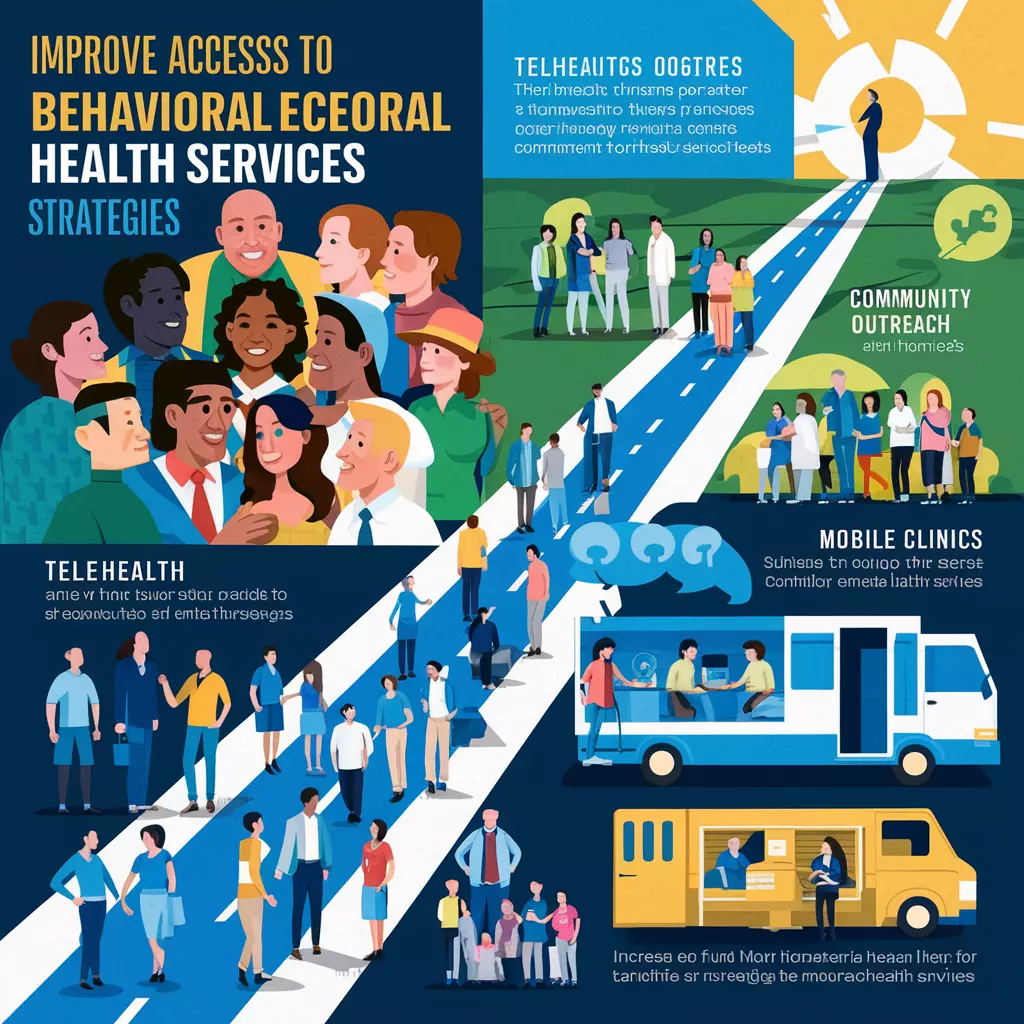
Improving access to behavioral health services is pivotal for addressing the gaps identified in the current landscape. Here, we explore effective strategies that can be implemented to enhance access across various dimensions:
- Policy and Legislative Initiatives
- Mental Health Parity and Addiction Equity Act: Ensures that insurance coverage for mental health conditions is on par with physical health conditions. Continued enforcement and expansion of such policies are crucial.
- Recent Legislative Efforts: Increasing funding for mental health services through new health laws and budget allocations can support the expansion of services and resources.
- Innovative Healthcare Models
- Integration of Behavioral Health into Primary Care: Co-locating services can reduce stigma and make psychological care more accessible. This approach also facilitates better coordination of care.
- Telehealth and Digital Health Solutions: Expansion of telehealth services has been significant, especially post-pandemic. It offers a convenient way for patients to receive care, particularly in underserved areas.
- Community-based Programs and Services: Programs like school-based mental health services and community mental health centers play a critical role in reaching populations that might otherwise lack access.
- Funding and Resource Allocation
- Federal and State Funding Opportunities: Identifying and utilizing existing grants can support the development and sustainability of behavioral health programs.
- Grants and Private Sector Investments: Partnerships with private entities can provide additional resources and innovative technology solutions for mental health.
- Effective Allocation of Resources: Strategically distributing resources based on community needs assessments can ensure that funds are used where they are most needed to improve access and outcomes.
Enhancing Behavioral Health Outcomes
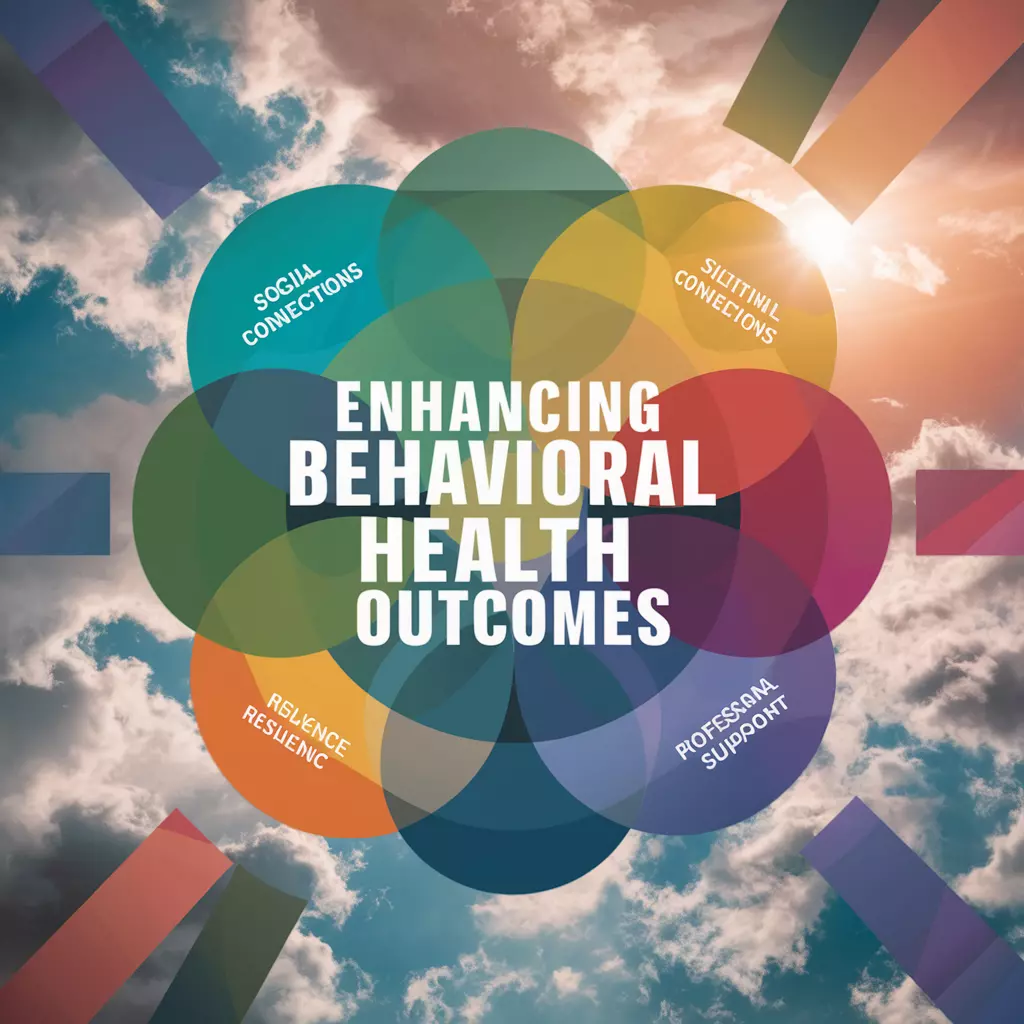
Enhancing the outcomes of behavioral health services is as critical as improving access. This section outlines effective approaches to boost the quality and effectiveness of mental health care:
- Evidence-Based Practices
- Overview of Evidence-Based Interventions: Utilizing treatments that have been scientifically proven to be effective, such as Cognitive Behavioral Therapy (CBT) and medication-assisted treatment, can significantly improve patient outcomes.
- Implementation Strategies for Healthcare Providers: Training and supporting healthcare providers in these practices ensures that treatments are administered correctly and consistently across various settings.
- Measuring and Monitoring Outcomes
- Key Metrics for Assessing Behavioral Health Outcomes: Regularly tracking outcomes through metrics such as symptom improvement, patient satisfaction, and readmission rates helps in evaluating the effectiveness of services.
- Tools and Methodologies for Data Collection and Analysis: Implementing robust data collection systems and using advanced analytics can provide deeper insights into treatment efficacy and areas needing improvement.
- Continuous Improvement
- Approaches for Ongoing Evaluation and Quality Improvement: Establishing continuous feedback loops within healthcare organizations, where data on outcomes is regularly reviewed and used to refine practices.
- Feedback Loops and Patient Engagement: Engaging patients in their treatment planning and feedback collection improves care personalization and outcomes.
Case Studies and Success Stories

Real-world examples can powerfully illustrate effective strategies for improving behavioral health access and outcomes. This section explores several case studies that highlight successful initiatives and provide valuable insights for replication:
- Innovative Programs and Initiatives
- Urban Community Health Center: This center successfully integrated behavioral health services into primary care settings, significantly reducing the stigma and improving access for its urban community. By utilizing a team-based approach, they were able to offer comprehensive care that addresses both physical and mental health needs.
- Rural Telehealth Implementation: A rural clinic introduced telehealth services to combat the lack of local mental health professionals. This initiative not only extended their reach but also provided continuous care, which was previously unavailable in this remote area.
- Lessons Learned
- Challenges and Solutions: Both case studies faced initial challenges. The urban center struggled with funding, which was mitigated by seeking grants and partnering with local businesses for support. The rural clinic faced technological barriers, which were overcome by implementing training sessions for both patients and providers.
- Best Practices for Replication: Key takeaways include the importance of community involvement in planning and executing behavioral health initiatives, and the critical role of ongoing training and support for all stakeholders involved.
For More Information Read More Article
Resources for Healthcare Professionals
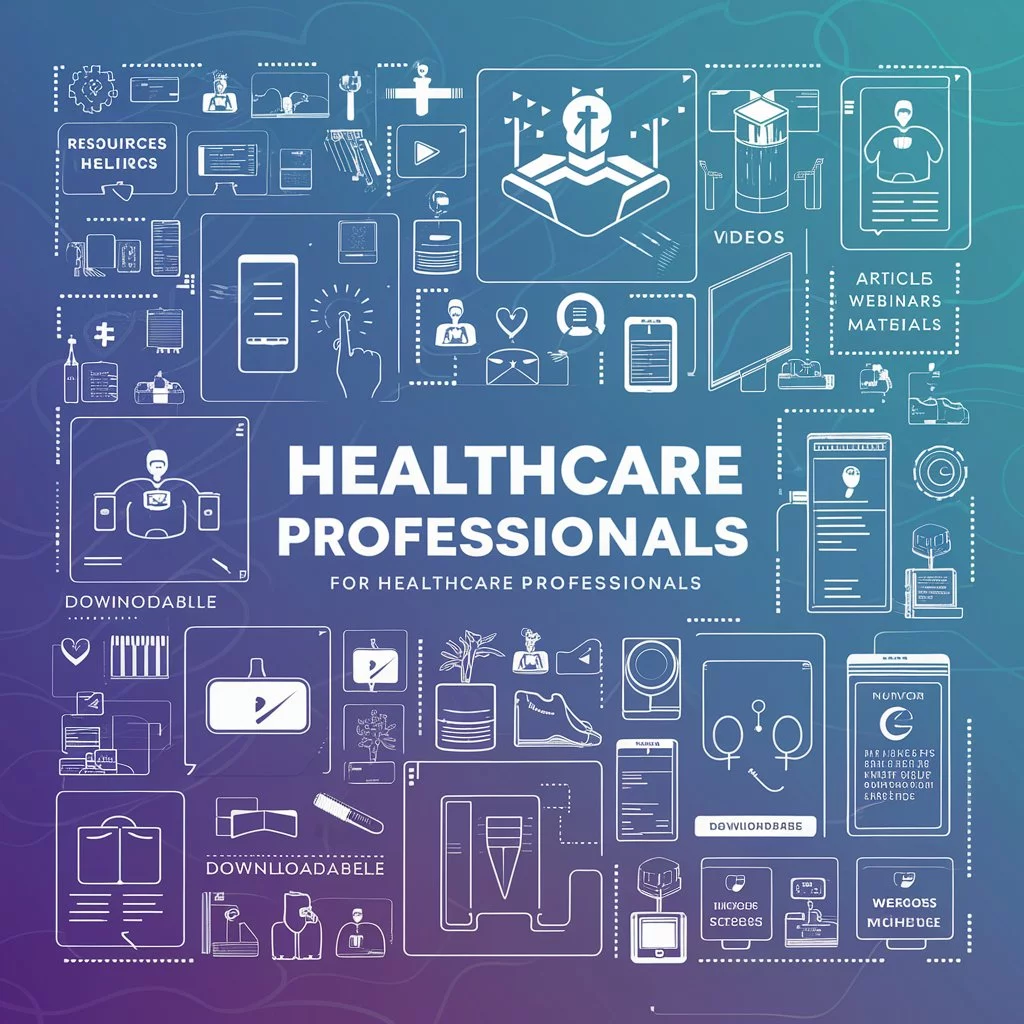
Equipping healthcare professionals with the right tools and knowledge is essential for improving behavioral health access and outcomes. This section provides an overview of key resources that can support professionals in enhancing their services:
- Professional Development and Training
- Continuing Education Opportunities: Regular training and workshops are crucial for keeping up with the latest practices in behavioral health. Resources like the American Psychological Association offer courses and seminars that focus on emerging trends and treatment techniques.
- Certification Programs and Workshops: Various certification programs are available for professionals seeking to specialize in areas such as addiction counseling or child and adolescent mental health.
- Tools and Toolkits
- Practical Resources for Implementing Behavioral Health Initiatives: Many organizations, like the Substance Abuse and Mental Health Services Administration (SAMHSA), provide toolkits that include step-by-step guides, checklists, and templates to help in setting up or expanding behavioral health services.
- Guides, Checklists, and Templates: These tools can streamline the process of implementing new programs and ensure that all necessary steps are followed for effective service delivery.
- Networking and Support
- Professional Organizations and Associations: Joining professional organizations, such as the National Alliance on Mental Illness (NAMI), can provide support networks, advocacy tools, and additional resources tailored to mental health professionals.
- Online Forums and Communities: Platforms like Psych Central offer spaces where professionals can share experiences, seek advice, and collaborate on challenges they face in their practice.
Conclusion
Behavioral health is a critical aspect of overall wellness, and enhancing access and outcomes in this field is essential for societal well-being. In this article, we have explored:
- The Current State of Behavioral Health Access: Highlighting the barriers and disparities that impede effective care.
- Strategies to Improve Access: From policy reforms to innovative healthcare models and funding strategies.
- Enhancing Outcomes: Utilizing evidence-based practices and continuous improvement processes to ensure high-quality care.
- Successful Case Studies: Providing real-world examples that offer insights and practical approaches for improving services.
- Resources for Healthcare Professionals: Outlining key tools, training, and support networks available to professionals in the field.

James Wilson is the insightful financial writer behind the wealth of knowledge on WealthWaves. With a keen understanding of finance and a passion for helping others navigate the complexities of money management, they specialize in crafting informative articles, practical tips, and expert advice to empower readers on their journey to financial freedom.
Join James Wilson on WealthWaves to embark on a path towards financial success and prosperity.
